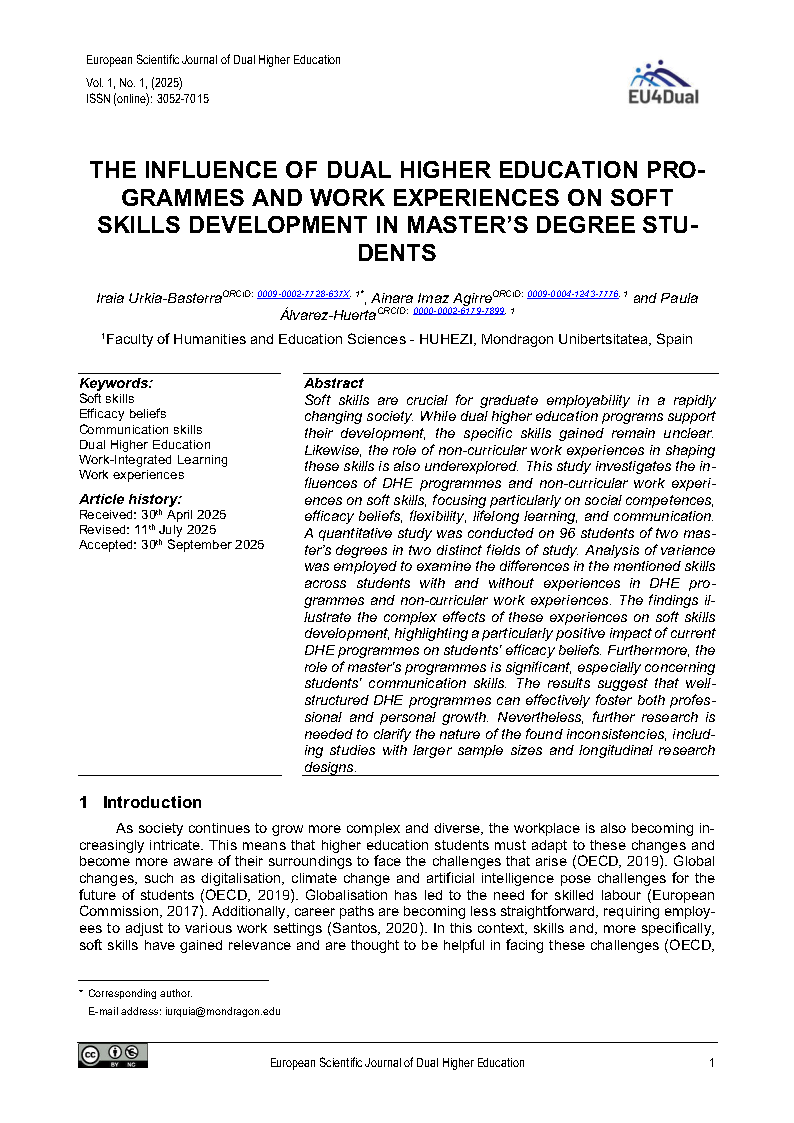The Influence of Dual Higher Education Programmes and Work Experiences on Soft Skills Development in Master's Degree Students
Keywords:
Soft skills, Efficacy beliefs, Communication skills, Dual Higher Education, Work-Integrated Learning, Work-Based Learning, Work experiencesAbstract
Soft skills are crucial for graduate employability in a rapidly changing society. While dual higher education programs support their development, the specific skills gained remain unclear. Likewise, the role of non-curricular work experiences in shaping these skills is also underexplored. This study investigates the influences of DHE programmes and non-curricular work experiences on soft skills, focusing particularly on social competences, efficacy beliefs, flexibility, lifelong learning, and communication. A quantitative study was conducted on 96 students of two master’s degrees in two distinct fields of study. Analysis of variance was employed to examine the differences in the mentioned skills across students with and without experiences in DHE programmes and non-curricular work experiences. The findings illustrate the complex effects of these experiences on soft skills development, highlighting a particularly positive impact of current DHE programmes on students' efficacy beliefs. Furthermore, the role of master's programmes is significant, especially concerning students' communication skills. The results suggest that wellstructured DHE programmes can effectively foster both professional and personal growth. Nevertheless, further research is needed to clarify the nature of the found inconsistencies, including studies with larger sample sizes and longitudinal research designs.

Additional Files
Published
Issue
Section
License
Copyright (c) 2025 Iraia Urkia-Basterra, Ainara Imaz Aguirre, Paula Álvarez-Huerta

This work is licensed under a Creative Commons Attribution-NonCommercial 4.0 International License.

